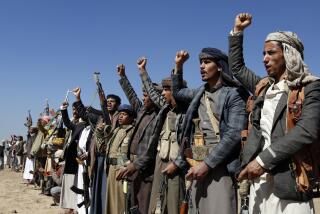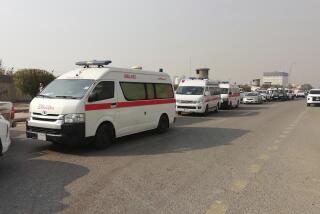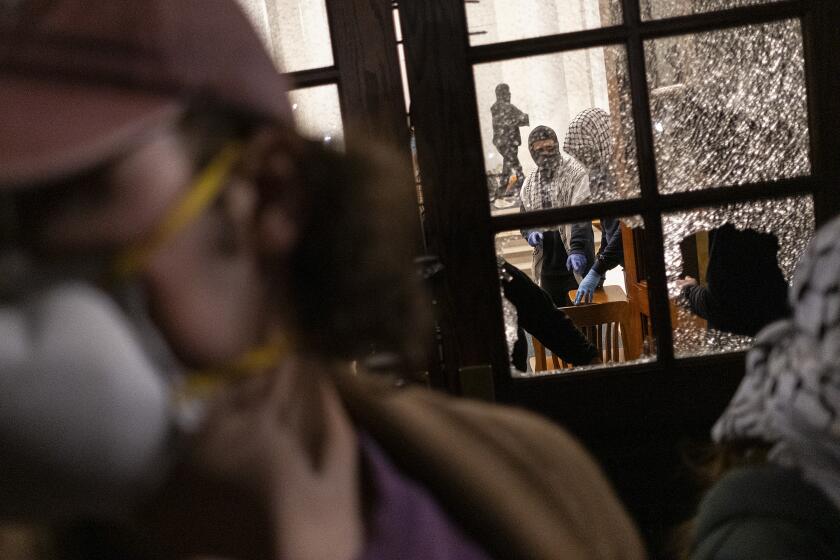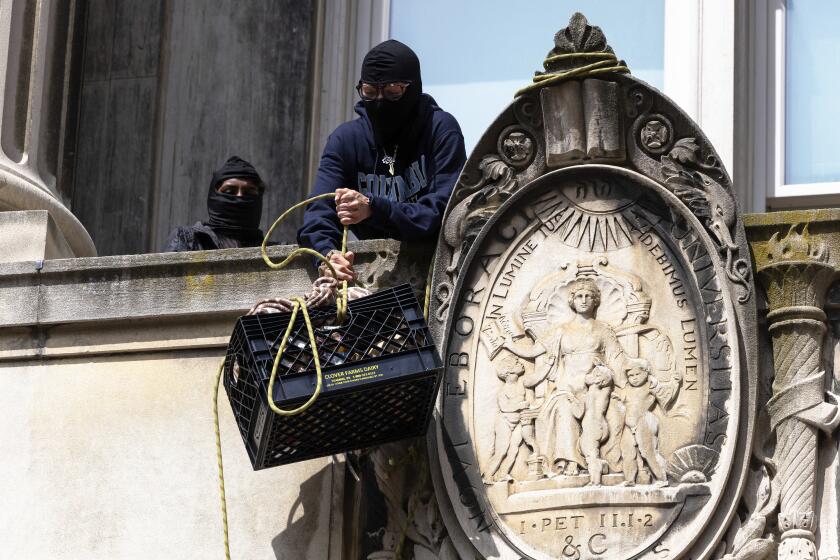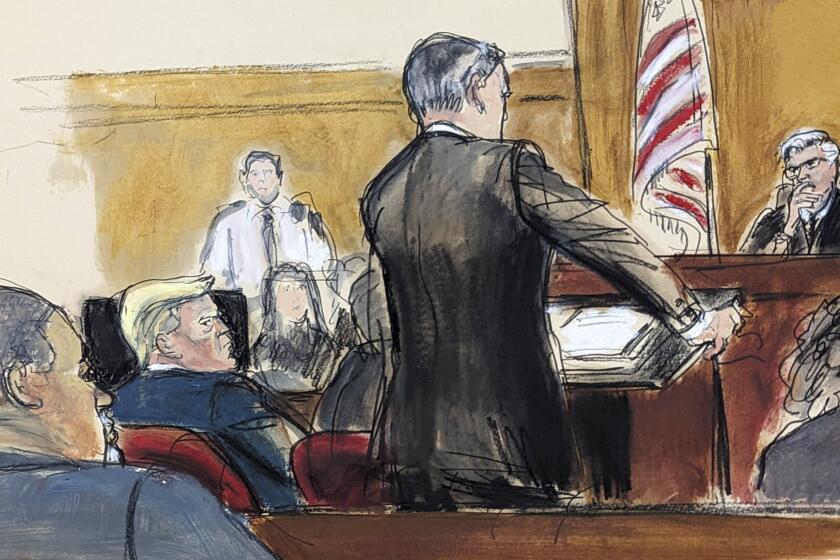Libyan rebels’ representatives to meet with world leaders
Despite lingering questions about the rebels in Libya, the coalition of countries battling Libyan leader Moammar Kadafi is increasingly treating them as the country’s legitimate rulers.
Coalition officials have invited senior members of a rebel leadership group to London next week to meet world leaders at a two-day conference to bolster international support for the Libyan operation, officials said Friday.
The invitation was issued even though the coalition countries are in a delicate position regarding the rebels. The United Nations resolution that authorizes the air campaign does not direct the coalition to provide any military support to the opposition.
Photos: “A kumbaya moment” with Libyan rebels
And while France has recognized them as the legitimate rulers of Libya, the United States and many other countries continue to have some doubts.
Gene A. Cretz, the U.S. ambassador to Libya, told reporters at the State Department that the so-called Transitional National Council is inexperienced and only now getting organized, but that “they have moved in a very positive direction.”
Cretz, who fled Libya with his staff Feb. 23, said the administration was still weighing the question of whether to recognize the group and was also considering whether to provide more aid to the rebels, including arms.
“Nothing is off the table,” Cretz said, but he added that U.S. officials were still watching the group carefully. “I don’t think we are in a position where we can say this is a … 100% kosher group.”
U.S. officials are wary in part because of their experience in Iraq in 2003, when many groups offered themselves as the country’s rightful leaders, but few had real political support.
President Obama will address the nation Monday night from the National Defense University in Washington to offer “a very clear explanation” for his decision to involve U.S. forces in the Libyan campaign, White House Press Secretary Jay Carney said.
Obama briefed congressional leaders by teleconference Friday in an effort to quell growing questions about the Libya intervention, which the White House has said is not a war.
A week into the aerial bombardment of Kadafi’s forces, Vice Adm. William E. Gortney, the director of the Pentagon’s Joint Staff, acknowledged that the campaign had not yet yielded a “change in behavior” among regime forces, which have suffered losses but remain a “battlefield threat.”
There have been 232 airstrikes carried out by U.S. aircraft since the operation began last Saturday, and 244 by aircraft from other countries, Gortney said.
The coalition has destroyed Kadafi’s air defenses and has kept his planes grounded, Gortney told reporters at the Pentagon, but is constrained from attacking in cities where battles are ongoing because of the risk to civilians. Instead, the approach is to cut off the supply lines of government army units that are fighting in populated areas, in the hopes of eroding their capacity and will to fight.
“The coalition is working … to make it very hard for Col. Kadafi and his troops to kill their own citizens and destroy property,” Gortney said. “But that … is a delicate mission.”
The coalition’s air campaign has forced Kadafi’s troops to infiltrate the contested city of Misurata on foot, where they have taken up positions on the centrally located Tripoli Street and opened fire with small arms and mortars. Witnesses reached in the city Friday and earlier described harrowing scenes of Kadafi’s men randomly targeting civilians on the streets.
A video clip sent to The Times showed the bodies of a chalk-faced baby and his family lying in a heap of rubble, allegedly victims of a Friday morning mortar attack in Misurata by Kadafi’s forces. The video could not be authenticated.
Because of the situation in Misurata and elsewhere, Gortney said, the use of Predator drones, which can hover over targets, transmit video and allow for precision strikes by small missiles, is being considered.
But, he warned, “the difficulty in identifying friend from foe inside an urban environment is magnified significantly.”
“What we do not want to do is create civilian casualties,” he said.
The North Atlantic Treaty Organization has agreed to take over command of enforcing a no-fly zone, putting Canadian Lt. Gen. Charles Bouchard in charge of the air campaign and the naval task force implementing an arms embargo. But discussions continue over the most significant portion of the military mission — that of airstrikes targeting tanks and other ground elements of Kadafi’s army.
Gortney insisted that the United States ultimately would also transfer the mission to protect civilians to NATO or a coalition of allied partners, as Obama has said would happen.
On Friday, coalition forces hit Libyan tanks outside the town of Ajdabiya as the tanks were preparing to fire into the city, which has been under siege by Kadafi forces for more than a week.
Photos: “A kumbaya moment” with Libyan rebels
Times staff writer Borzou Daragahi in Tripoli and Lisa Mascaro in the Washington bureau contributed to this report.
More to Read
Get the L.A. Times Politics newsletter
Deeply reported insights into legislation, politics and policy from Sacramento, Washington and beyond. In your inbox three times per week.
You may occasionally receive promotional content from the Los Angeles Times.

